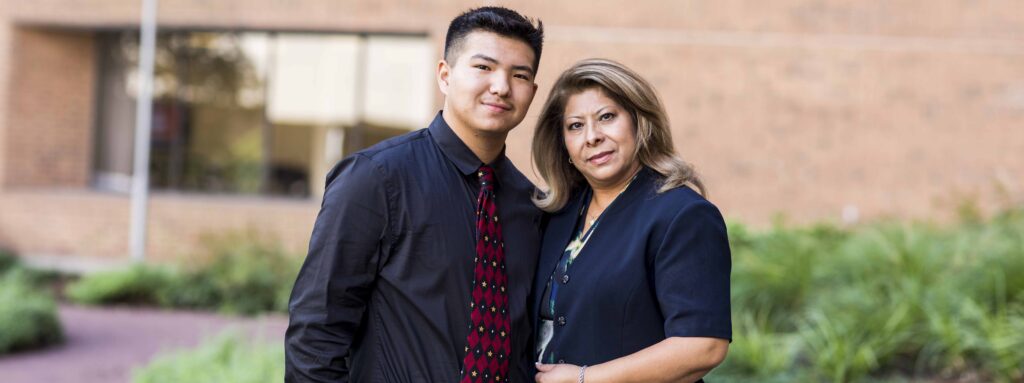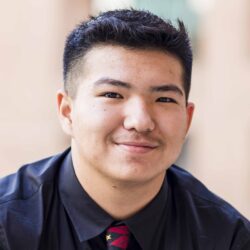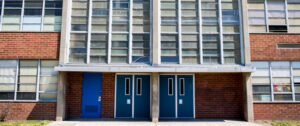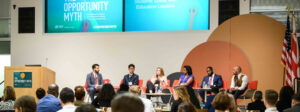I’m 16 years old, but I’ve known I wanted to go to college since I was a little kid. It’s important to me to pursue a career I’m passionate about, and to do that I need to get a good education.
My biggest supporter in achieving this goal is my mother, Renee Johnson. We moved five times before I was 12 years old, searching for the right school. It was hard because the better schools were in more expensive areas, where we couldn’t afford to buy a home. And in the places where we could buy a home, my education would suffer. We eventually found a neighborhood in Las Vegas that worked for us, but the public education system is far from perfect, and we still have our challenges.
I sat down with my mother to talk about what she’s learned along the way, and discuss her reaction to The Opportunity Myth’s findings that students are graduating from high school much less prepared for college than we realize.
Do you feel like I’m ready for college?
I think you’ll do well, but it won’t be easy. Because even though you get straight As, I know the reality is that most public schools are not up to college standards.
So, am I confident that you’re going to get a scholarship and go to the college of your dreams, and then thrive at that college? I am hoping and praying that you will, because it’s what you want. But even though we’ve all worked so hard, you, your stepdad, and me, I still have the sweat beam coming down my forehead, because I don't know if it's guaranteed. There are no guarantees in the school system today. You know?
If any student can succeed, you are the type of student who could. Because you push yourself, much harder than I do—you have goals; you know where you want to go and what you want to do.
What could schools do to give parents a better idea of how ready their kids are for college?
I’m worried you’ll graduate from high school with what we think are excellent grades, and then you’ll get to college and be hit in the face with a reality that your As mean nothing. There is so much information that is not easily accessible to parents, and even though I’m super vigilant and continuously seeking information, I’m still worried there’s something I’m missing. It would be helpful to see on students’ report cards something that communicates, “Yeah, you're getting As. But when you get to college, your A is going to translate to a C. Or a C-.” I think students and parents deserve to know how the grades they’re getting in high school are going to translate into grades in college.
Also, it would be great for there to be a database where kids could enter information about their background, school, interests, grades, culture, race, income, that type of thing, along with the college they aspire to attend. And then, that database would outline the steps families need to take to make the kid’s college dreams a reality—and give us an idea of how realistic those dreams are. That way, things would seem much less impossible.
What do great partnerships between parents and schools look like?
Instead of just saying they’re preparing kids for college, and maybe having one school counselor helping hundreds of students apply to college when they’re juniors or seniors, schools should work with us from kindergarten to make sure we have all the information possible.
It would be great to sit down with someone who could say, “According to what your son is doing, what he wants to do, and the requirements for where he wants to go, these are the things that you're going to come up against. These are the challenges.” Then, we could work together to figure out how to overcome these challenges from first grade all the way up to high school graduation. Families shouldn’t have to wait until junior or senior year to be faced with the reality that their kids aren't ready for college.
Really though, it starts with an honest and caring relationship between parents, teachers, and students. As parents, we’re going to support kids in whatever they want to do, but at the end of the day, we have to rely on what the teachers and school leaders tell us when it comes to helping our kids get there. But if we don't even know what the needs are, or what the obstacles are going to be, how can we help them?
Any advice you have for other parents?
To me, great parents are committed to continually asking questions. “What can I do? Where can I go? What else is there available? What other resources can I get for my child? How can I become involved?”
The most significant breakthrough for me as a parent was realizing that I can make a difference and push the education system to do better. Sure, there will be times teachers, administrators, and I have to agree to disagree, and that can be very difficult.
But at the end of the day, I'm watching out for my child and his future—because, like most parents, I want him to have a better life than me.
Read more about improving students’ school experiences in The Opportunity Myth—then take the first step by requesting your own free action guide featuring tools and advice to help more kids have worthwhile experiences in school.





